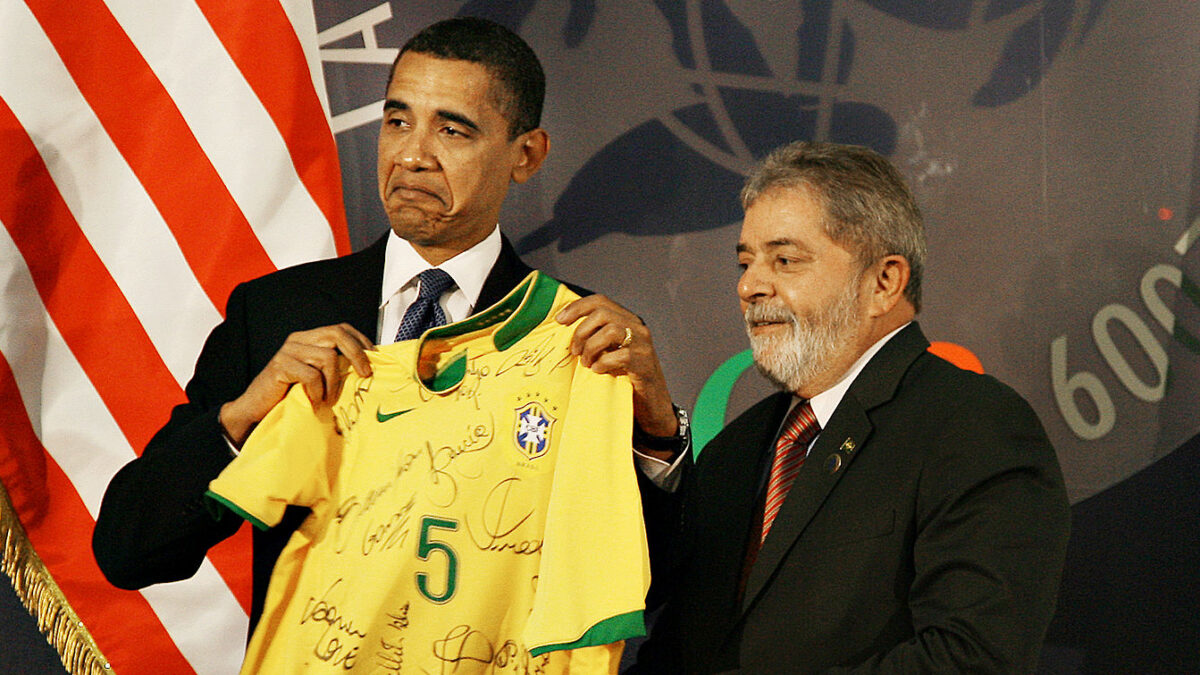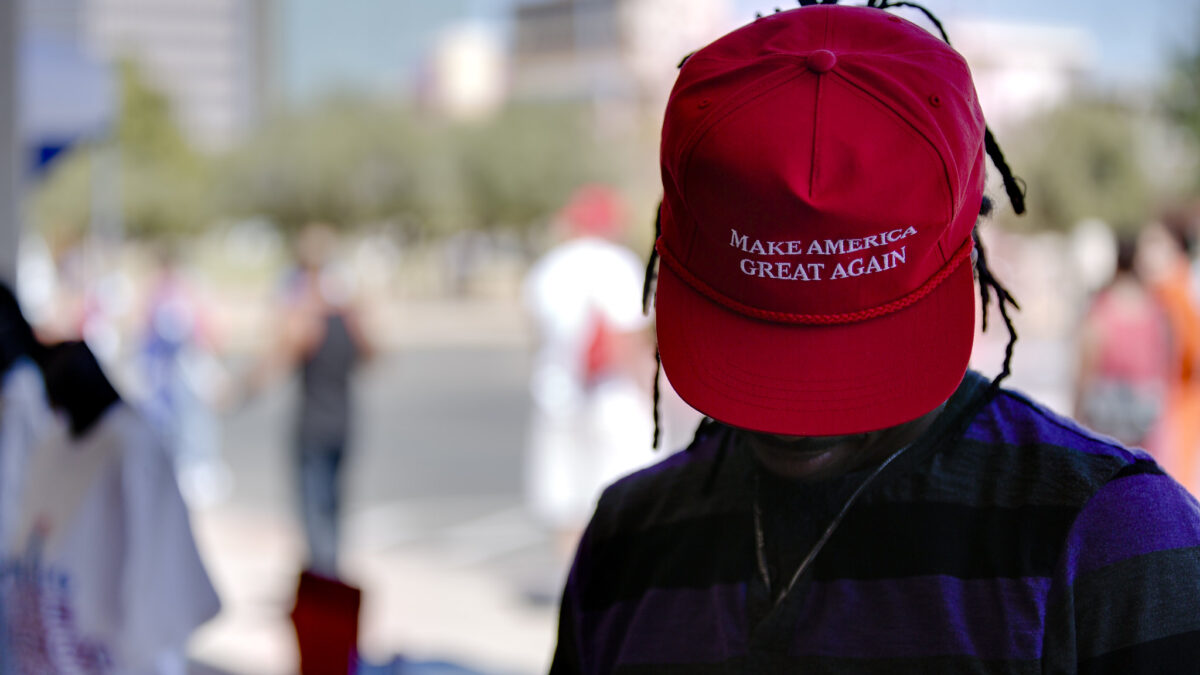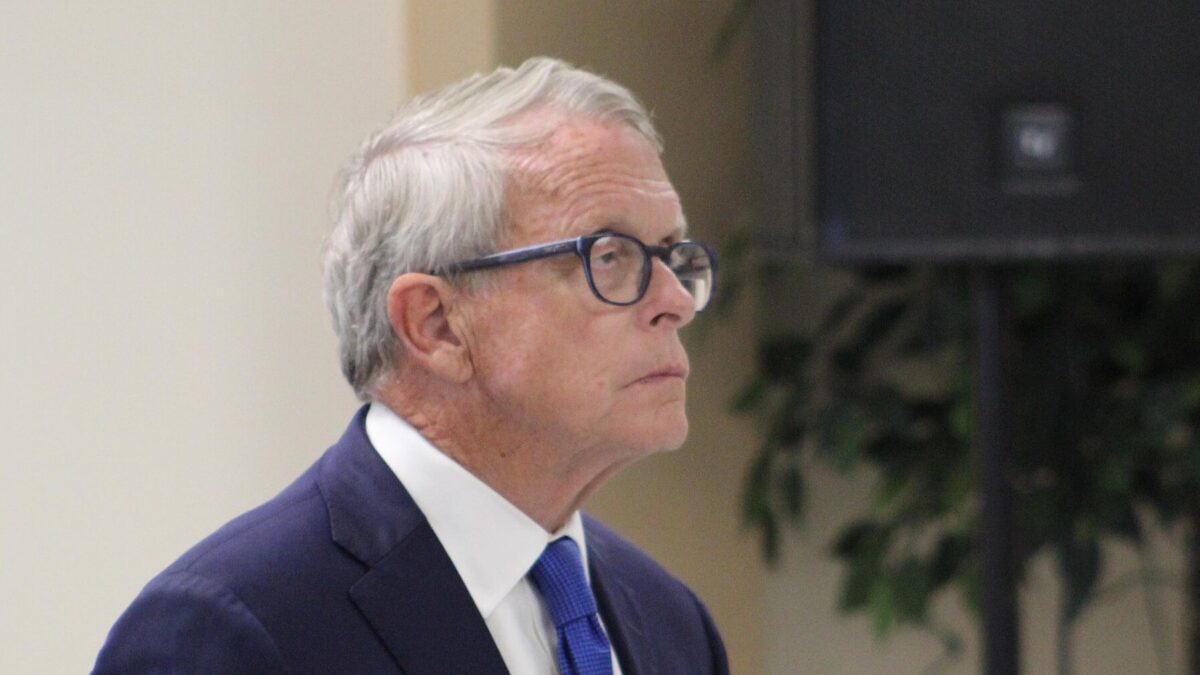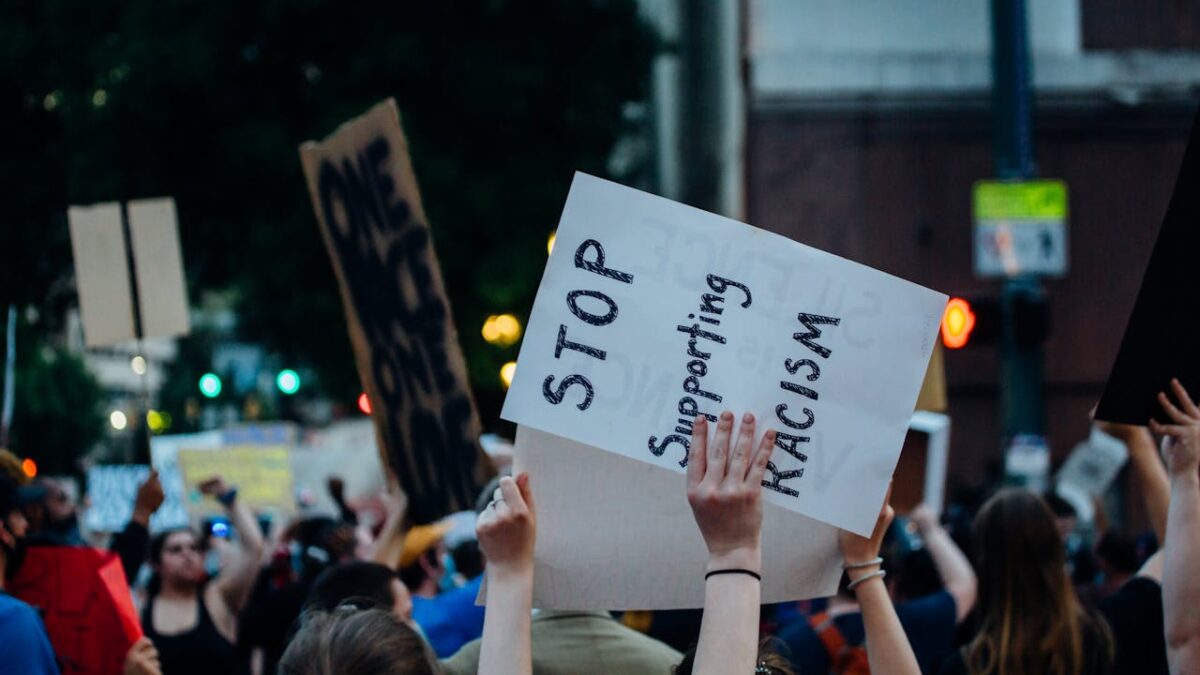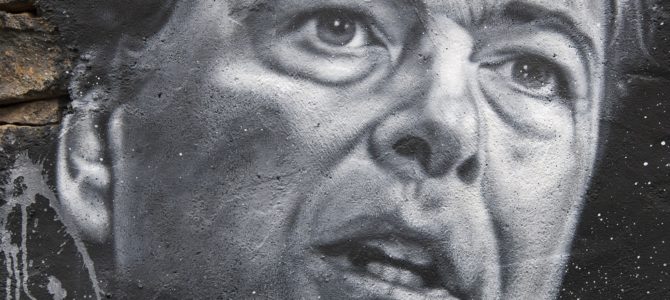
When Hillary Clinton was running for president, and from allegations that she knowingly allowed classified information to traffic over her private server, she faced a critical dilemma: How do I address the issue credibly, while protecting myself from prosecution?
She couldn’t do one without compromising the other. She couldn’t speak honestly about her knowledge of the rules for handling classified information and keep herself out of a legal bind that hinged on whether she was aware her actions were unlawful.
Although claiming ignorance of these basic tenets of classification would cause her some temporary grief, Option B was a game-ender. Clinton couldn’t, under any circumstances, admit, accept, allow for, or publicly contemplate the notion that she had been fully briefed on the rules or was aware that any information on her server was classified. That would open a door that could never, ever be closed.
Option A would be bad. Option B would be catastrophic. So she chose Option A because her true audience, the only one that mattered, consisted of one man: James Comey.
Comey validated Clinton’s choice when he began drafting her exoneration letter in May 2016, two months before the FBI interviewed Clinton. He had to have known exactly what she was doing, and that she wouldn’t break role once she sat in front of his agents. She’d already demonstrated her dogged adherence to the non-incriminatory discipline of Option A.
In keeping to this script, she effectively checked the boxes Comey says he held open until after her interview. Did she know classified information was being transmitted on her server and continue to allow it to happen? “I didn’t know.” Did she receive a briefing on handling classified information, which clearly prohibits the actions she took in setting up her private server? “I don’t recall such a briefing.” Did anyone ever tell her that classified information was being transmitted on her server? “Not that I recall.”
Everyone knew Clinton was lying, but Comey couldn’t prove it because she stuck to Option A. And it worked. Hillary Clinton went on to write a New York Times bestseller and is freely walking the trails of Chappaqua, making speeches, and enjoying a comfortable retirement from government service.
The Same Thing Happened to James Comey
Comey has been telling us he faced a couple of similar dilemmas regarding Mrs. Clinton during the 2016 election campaign, both of which presented him options he considered either “bad” or “catastrophic.”
First, he characterized his decision to publicly address the FBI’s conclusion of their investigation into Clinton’s server (without consulting with the Department of Justice) as the “bad” option. The “catastrophic” option would be to allow DOJ to handle it with a standard announcement of their decision to not move forward with charges.
He tells us the basis for this characterization was the behavior of Attorney General Loretta Lynch, whom he believed was compromised—albeit, he assures us, undeservedly so—along with statements from President Obama that Comey considered potentially detrimental to the public’s trust that the FBI was handling the investigation objectively.
Next, he faced an even more consequential decision: whether to send a letter to Congress announcing the reopening of the Clinton investigation in late-October 2016, after the FBI discovered emails on Anthony Weiner’s laptop that agents considered new and relevant to the investigation.
Knowing full well the letter would become public within minutes of receipt and harm the Clinton campaign within days of the election, Comey tells us his options were to either “speak” or “conceal.” One was bad, in that it inserted the FBI back into the political arena at a crucial time. The other would be catastrophic, in that it would undoubtedly eventually be revealed that the FBI sat on information contrary to Comey’s public and private testimony that the Clinton investigation was closed, a revelation Comey believed Clinton opponents would use to question the legitimacy of her election to the presidency.
In this, perhaps the most consequential decision of his career, Comey decided to “speak”—to send the letter to Congress—in order to avoid the “corrosive” effects he anticipated would beset the FBI and justice system were he to act otherwise. He also tells us, in his book and in interviews promoting it, that, in contemplating his decision, he “may have” taken into account his belief that a Clinton victory was inevitable, that he couldn’t recall “consciously” factoring that information into his deliberation, but that, at some level, he “must have” done so.
The result, as we know now, was a national uproar that Clinton and her supporters claim cost her the election, although any convincing evidence of such a claim is hard to come by.
James Comey Remembers Everything. Except This
Between the lines of what I’ve described above are volumes of detailed and comprehensive testimony, interview transcripts, personal memos, and information from Comey’s book that demonstrate his remarkable ability to recall the words, actions, dates, times, and settings of the interactions and decision-making processes he chose to include in his book.
Comey’s command of these details demonstrates his innate ability to recognize when something of consequence is occurring: when President Trump is walking right up to the obstruction of justice line; when an FBI lawyer asks if he’s aware his decision may help elect Trump president; when the attorney general turns from the door, lowers her head, and walks to him with outstretched arms for a hug; when a barely perceptible cloud passes over Trump’s face; when Robert Mueller delivers a heartfelt, whispered message to an ailing John Ashcroft; when he awakens at 2 a.m. with the revelatory thought that “If there are tapes, we’ve got to get them”; when he stares out his office window at the Brooklyn Bridge, contemplating prosecution of Martha Stewart while thinking of a black minister in Richmond, Virginia.
Nothing gets by Comey. That makes this paragraph from his book all the more curious (emphasis added): “At some point in early October, someone at FBI headquarters (I think it was Deputy Director Andrew McCabe) mentioned to me that former Congressman Anthony Weiner had a laptop that might have some connection to the Clinton email case. I don’t remember the conversation clearly. I suspect that is because it seemed like a passing comment and the notion that Anthony Weiner’s computer might connect to Midyear and Hillary Clinton made no sense to me.”
The same vagueness occurs suddenly during this interview with George Stephanopoulos of ABC News (emphasis added):
GEORGE STEPHANOPOULOS: At the same time, the Hillary Clinton email investigation comes back. When did you first know you were going to have to deal with this again?
JAMES COMEY: Really, October 27th. Somebody earlier in October, the b– in the beginning of October sometime, mentioned to me that there may be a connection between emails found on Anthony Weiner’s laptop and the Clinton email investigation. I don’t remember.
GEORGE STEPHANOPOULOS: Was this Andrew McCabe?
JAMES COMEY: I think it was Andy McCabe, but I’m not certain. I didn’t store that in any prominent place in my brain ’cause how could that possibly be true?
GEORGE STEPHANOPOULOS: But how could that not be something you remember?
JAMES COMEY: That’s a great question. I think the answer is because how could that possibly be true? How could there be a connection between Anthony Weiner’s laptop and Hillary Clinton’s emails? And so I think it was sort of a passing comment to me, and I’m sure I stored it away thinking, ‘Okay, well, that doesn’t make any sense, but I’m sure they’ll tell me if it does.’ And they did. They c—
George is right—how could that not be something Comey would remember? We’re talking about the first time he had any inkling that the nightmare known as “Mid-Year Exam” (the FBI’s code name for the Clinton email investigation) was rising from its crypt to besiege him and his institution yet again. In retrospect, this encounter signaled the beginning of a life-changing experience.
Comey Is Curiously Incurious About What Happened Here
One would expect laser-focus on such an encounter. What did you just say? How do they know this? Who’s running the investigation up there? What exactly have they told you about these emails? When did they find them? Or he could simply have asked McCabe (or whoever casually mentioned the emails on Weiner’s laptop) the same questions he says he asked himself: How could there be a connection between Weiner’s laptop and Clinton’s emails?
But Comey tells us he asked nothing of no one, and didn’t hear of it again until McCabe emailed him at 5:30 a.m. on 27 October that the Mid-Year Exam team needed to meet with him. That, he remembers.
Putting aside for a moment the dubious likelihood of the encounter as Comey describes it, let’s stipulate its accuracy. So why not pick up the phone to ask McCabe about it when writing the book? “Hey Andy, remember when the first reports were coming in from New York about the Weiner laptop thing? Was it you who told me about that, or someone else? When did you tell me? What did you tell me, exactly? What did I say? Why do I ask? Because I just can’t remember.”
Barring that, what are the odds that an FBI director, ambushed by game-changing information the FBI had known about for a month and that caused him to take immediate action that may have altered the results of the presidential election, wouldn’t review the FBI’s actions in the case to determine why, exactly, it took a month for him to be briefed?
The answer to all above is that none of it makes sense—Comey’s vague and disinterested responses; the unlikeliness of the scenarios he describes; and his apparent lack of interest in answering his own questions, then and now. There has to be an explanation for this anomaly in Comey’s carefully crafted narrative.
What If James Comey’s Hand Was Forced?
This exchange during his interview with Bret Baier of Fox News may help explain it (emphasis added again):
BAIER: You said it was, last night, a tough choice between concealing or coming forward. A really tough choice. But there are authorities in New York who are saying that…FBI HQ was slow-walking that case and weeks went by without any action. Did you know that Andrew McCabe, your deputy, had sat on that revelation about the emails?
COMEY: Yes. I don’t know that — I don’t know that to be the case. I do know that New York and FBI headquarters became aware that there may be some connection between Weiner’s laptop and the Clinton investigation weeks before it was brought to me for decision.
And as I write in the book, I don’t know whether they could have moved faster and why the delay.
BAIER: So was it the threat that the New York agents were going to leak, that it existed really what drove you to the not conceal part?
COMEY: I don’t think so. I think actually what drove it was the prosecutors in New York who were working the criminal case against Weiner, called down to Headquarters and said are we getting a search warrant or not for this.
That caused — I’m sorry. Justice Department Headquarters, to then call across the street to the FBI and poke the organization and they started to move much more quickly. I don’t know why there was — if there was slow activity, why it was slow for those first couple of weeks.
Recall that Option A, the “bad” option, is steadfastly claiming ignorance of details one would be expected to know. Option B, the “catastrophic” option, would be to allow that Comey’s actions on October 28 weren’t born of some altruistic responsibility to martyr himself in pursuit of truth and justice, but of the need to get ahead of FBI New York and the New York Police Department threatening to leak that FBI HQ was sitting on an explosive discovery in the Clinton email investigation.
That would be catastrophic, as it would moot any “conceal” option, with which Comey claims he and his staff wrestled mightily after the 27 October briefing. The narrative would change from acting in the best interests of the country to acting in the best interests of Comey.
What Happened During the Entire Month of October?
In his book and interviews, Comey asks us to step into his shoes on October 28 and “show me another door, one that doesn’t require either ‘speak’ or ‘conceal.’” What he fails to mention is that those doors became available to Comey and the FBI at the beginning of October. The FBI appears to have chosen the “conceal” door until outsiders forced them to reconsider the “speak” door that had been there all along.
It could well be that Comey didn’t decide to ignore that “speak” door, that McCabe or some other member of his leadership team either decided to slow-walk it and keep it from Comey until they had no choice but to brief the boss, and that by 5:30 a.m. on 27 October, this had become a four-alarm fire that threatened to burn down the building. People make mistakes. It happens.
But that’s not the way Comey wrote it. While he briefly mentioned the possibility of leaks coming out of the criminal division of FBI New York, he wrote, “I hadn’t made my decision based on the prospect of a leak.”
The context in which he discusses this prospect is the likelihood that FBI New York would leak the fact that the investigation had been reopened if he didn’t make it public himself by sending the notification to Congress. This isn’t the context the press reported at the time, or since.
The issue bubbling to the surface at FBI New York had nothing to do with whether (or when) the public was made aware of the new emails. The issue that prompted the leak threats was that FBI HQ was suspiciously unresponsive to requests for furthering FBI New York’s investigation into the emails on the laptop. It’s within this fuzzy context that Comey hides the truth.
Let’s Compare Two Scenarios for Plausibility
Think of it this way. For Comey’s narrative to be accurate, the following would have to be true.
- Comey doesn’t remember when he was told of the existence of Clinton emails on Weiner’s laptop, who told him, or what was said during that exchange.
- The notion that a plausible link between Clinton’s emails and Weiner’s laptop may exist was so incomprehensible to Comey as to prevent its storage in “any prominent place in (his) brain.”
- Comey didn’t hear another word about the emails on Weiner’s laptop for almost a month, during a time the FBI was under intense scrutiny and pressure regarding anything related to the Clinton investigation.
- After being blind-sided by the information about the new emails, Comey didn’t, either officially through an internal review, or unofficially through conversations with his leadership team, seek to determine the timeline of the FBI’s actions in the Weiner laptop case, or the reason he wasn’t informed of the issue until 27 October.
Now, consider the other scenario—that Comey or McCabe were fully informed in early October that new Clinton emails were found on the Weiner laptop, that one or both decided to slow-walk it so as to not to have to take action, then were finally forced to do so under New York FBI’s threat of leaks to the press. For this narrative to be accurate, the following would have to be true.
- McCabe briefed Comey at the beginning of October that thousands of Clinton emails had been found on Weiner’s laptop, and a subpoena was needed to investigate further.
- They decided to slow-walk it, and were able to do so until they learned that FBI New York was about to leak it.
- No formal or informal review was ordered or executed, because Comey knew how it all went down, and didn’t want or need one.
While “reasonable people” could argue that the first narrative falls within the realm of possibility, I imagine those same people would have to admit that the second one seems a lot more plausible. If Comey indeed chose the Clinton Option, that professing ignorance or inattention could carry him over some rough patches in his narrative, we should all find out whether this was an effective strategy once the IG report on the FBI’s handling of the Clinton investigation is released in the coming days or weeks. My guess is that he’s not looking forward to it.
James Comey Finally Lifts His Carefully Constructed Mask
The old narrative on Comey was that he was one of the good guys, the rare public official whose integrity and independence were beyond reproach in a swamp otherwise infested with knaves, thieves, and self-aggrandizing back-stabbers. One of my old first sergeants would call him a “diamond in a goat’s -ss.”
Comey and his acolytes carefully crafted that narrative over many years through strategically leaked stories of his principled battles and confrontations with unprincipled politicians and government officials, but we never heard it from him. We’re hearing from him now, and that narrative is crumbling under the weight of his own words and actions.
According to Comey, in almost every instance he met an opportunity to take a principled stand against an unprincipled public figure, he demurred. When President Trump asked him for loyalty, he proudly relates his heroic decision to sit in silence. When Lynch tells him to call the Clinton investigation a “matter,” he assents. He didn’t think that “hill was worth dying on.” When Trump asks him to go easy on Michael Flynn, he says to himself, “I’ve got to remember every word of this,” yet says nothing to alert the president of the inappropriateness of his request.
On each of these occasions, instead of taking the principled stand, speaking truth to power and resolving the issue privately and professionally, he remained silent, secretly wrote it all down, leaked part of it, published the rest of it in a book, and is now telling Anderson Cooper the very things a principled FBI director would have told Lynch and President Trump to their faces, in private.
In his own words, Comey has lifted the mask on that white-hatted paragon of virtue, integrity, and justice, and revealed himself to be no different than the rest of those knaves, thieves, and self-aggrandizing back-stabbers in the swamp he waded through for 20 years or so. Upon closer inspection, there’s no diamond in there.


